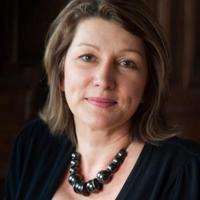4 Part Coaching and Mentoring Course
Tuesday 9th March 2021, 5:00 PM - Tuesday 30th March 2021 7:00 PM (London Time)
This four-part course will introduce you to the main principles and core skills of coaching and mentoring. You will explore coaching theory, perspectives and models and will have the chance to develop your practical skills with interactive sessions. This will allow you to put what you learn into place with your own professional practice, developing your abilities as a coach and enriching what you can offer to your students.
The course fee for this training series is £150 (VAT Inclusive).
Introduction to Coaching and Mentoring, with Teresa Shaw. Tuesday 9th March, 5pm-7pm (UK Time)
This workshop will give you an Introduction to Coaching and Mentoring. It will focus on building your
skill development in the areas of Building the Relationship, and Confidentiality and Trust.
- Skill Development: Building the Relationship, Confidentiality and Trust
Psychology and Values in Coaching, with Teresa Shaw. Tuesday 16th March, 5pm-7pm (UK Time)
This workshop will delve into Psychology and Values in Coaching. It will focus on building your skill development in the areas of Empathy, and Non-Verbal Communication.
- Skill development: Empathy, Non -Verbal Communication
Recognising Critical Incidents and Overcoming Barriers, and Ethics in Coaching and Mentoring, with Teresa Shaw. Tuesday 23rd March, 5pm-7pm (UK Time)
This workshop will introduce you to Recognising Critical Incidents and Overcoming Barriers. It will also discuss the importance of Ethics in Coaching and Mentoring, and how to integrate this into your practice. It will focus on building your skill development in the areas of Listening, and Recognising Barriers to Listening.
- Skill development: Listening and Recognising Barriers to Listening
Understanding Coaching Processes and Dynamics, and Using Coaching Models, with Teresa Shaw. Tuesday 30th March, 5pm-7pm (UK Time)
This workshop will give you an overview of Coaching Processes and Dynamics to enable you to understand these, and go on to be able to use Coaching Models. It will focus on building your skill development in the area of Questioning.
- Skill development: Questioning Skills
Teresa Shaw
Teresa has focused on the voice throughout her career. She completed her undergraduate degree in music at Manchester University, her Advanced Diploma in vocal...
Sorry, this is an archived short course...
We have plenty of upcoming short courses coming soon. See details of some of them below or look at the full list of short courses.

Thursday 19th February 2026
1:00 PM - 2:30 PM
Thursday 26th February 2026
1:00 PM - 2:30 PM
(London Time)
Performing Pain: Vocal Health in Emotional Roles!

Louisa Morgan
How connected are acted emotions to our real-life emotions? Are they expressed differently? Do they feel different in the body? This 2-part course with Louisa Morgan looks at the potential impact of acted emotion on vocal health, why we should consider it as voice practitioners, and how to care for our performers needing to work with it.


Tuesday 24th February 2026
5:00 PM - 7:00 PM
(London Time)
Incorporating CBT principles within vocal health and voice care

Dr Luke Aldridge-Waddon
Join Dr Luke Waddon as he introduces the principles and techniques within cognitive-behavioural therapy (CBT) in relation to the voice and voice care. He will discuss psychological factors relevant to the development and maintenance of voice disorders and how these might be approached from a cognitive-behavioural perspective. He will describe theoretical concepts and therapeutic components often used within CBT and consider how these might be applied when working with voice users.


Tuesday 3rd March 2026
5:00 PM - 7:00 PM
(London Time)
Sex differences in VOICE!

Dr Richard Lissemore
This two-hour workshop, led by performer, articulatory phoneticist, and voice physiologist, Dr. Richard Lissemore, will examine in detail the role that biological sex plays in the perception and pedagogy of singing voices. We'll consider how parameters such as anatomy, physiology, articulation, resonance, and radiated acoustics influence the perceptions and pedagogical decision-making of singing teachers.
